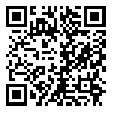This Day in Unitarian Universalist History January 21
1738 – Ethan Allen was born. His book, Reason: The Only Oracle of Man, strongly influenced the Universalist theology of Hosea Ballou. Allen and his brothers assembled the Green Mountain Boys in what is now Vermont. While leading troops in the American Revolution, he was captured and made a British prisoner of war from 1775-1778.
The post January 21 first appeared on Harvard Square Library.
Read more at: www.HarvardSquareLibrary.org – the digital library of Unitarian Universalism.


